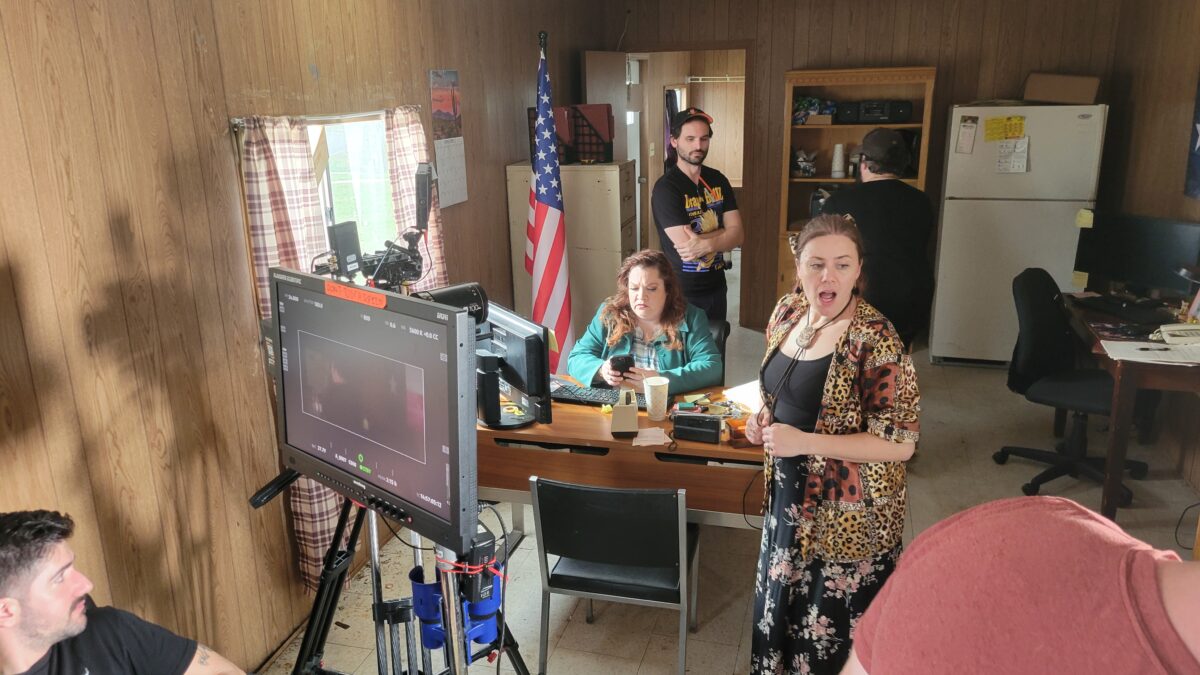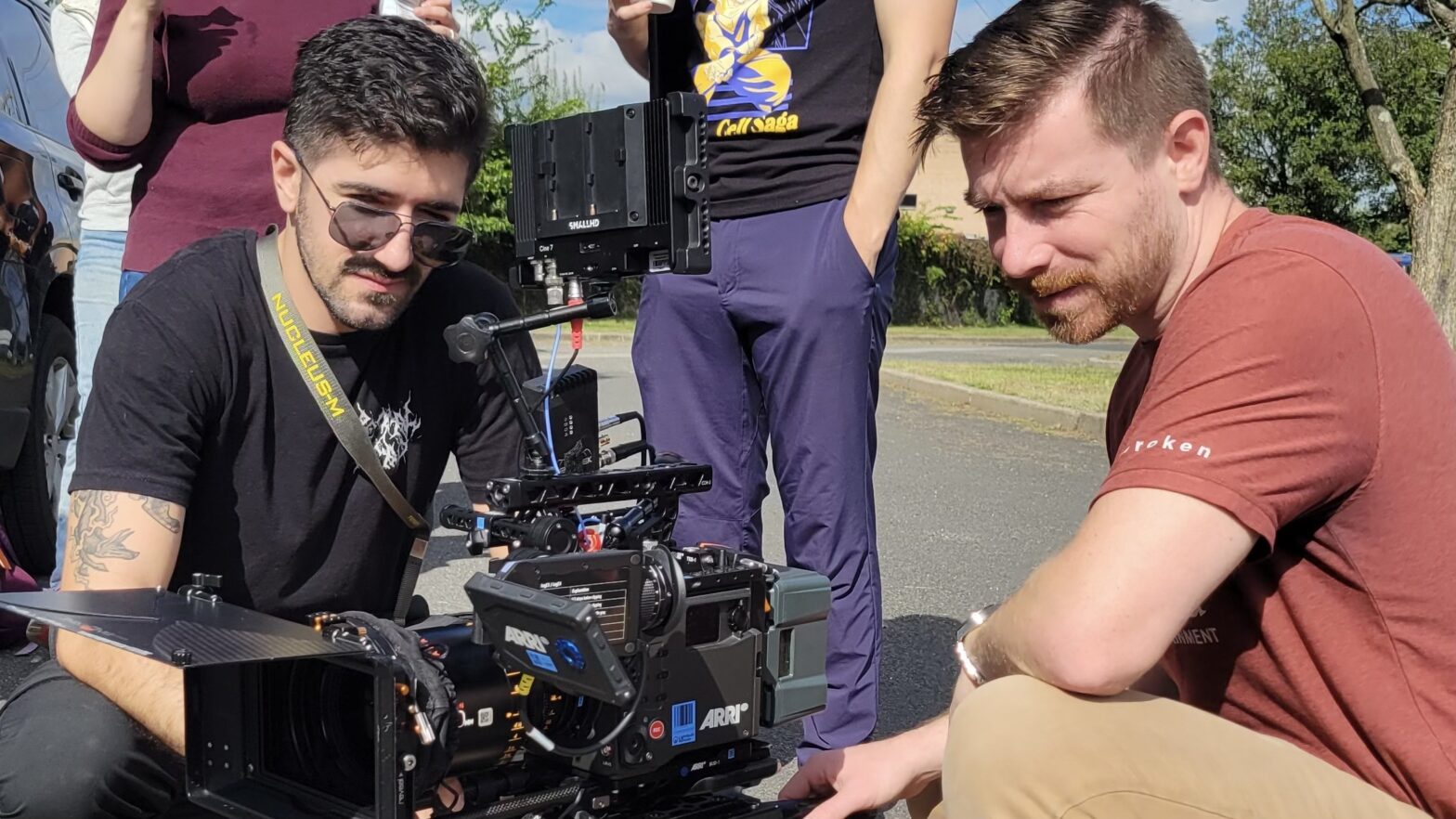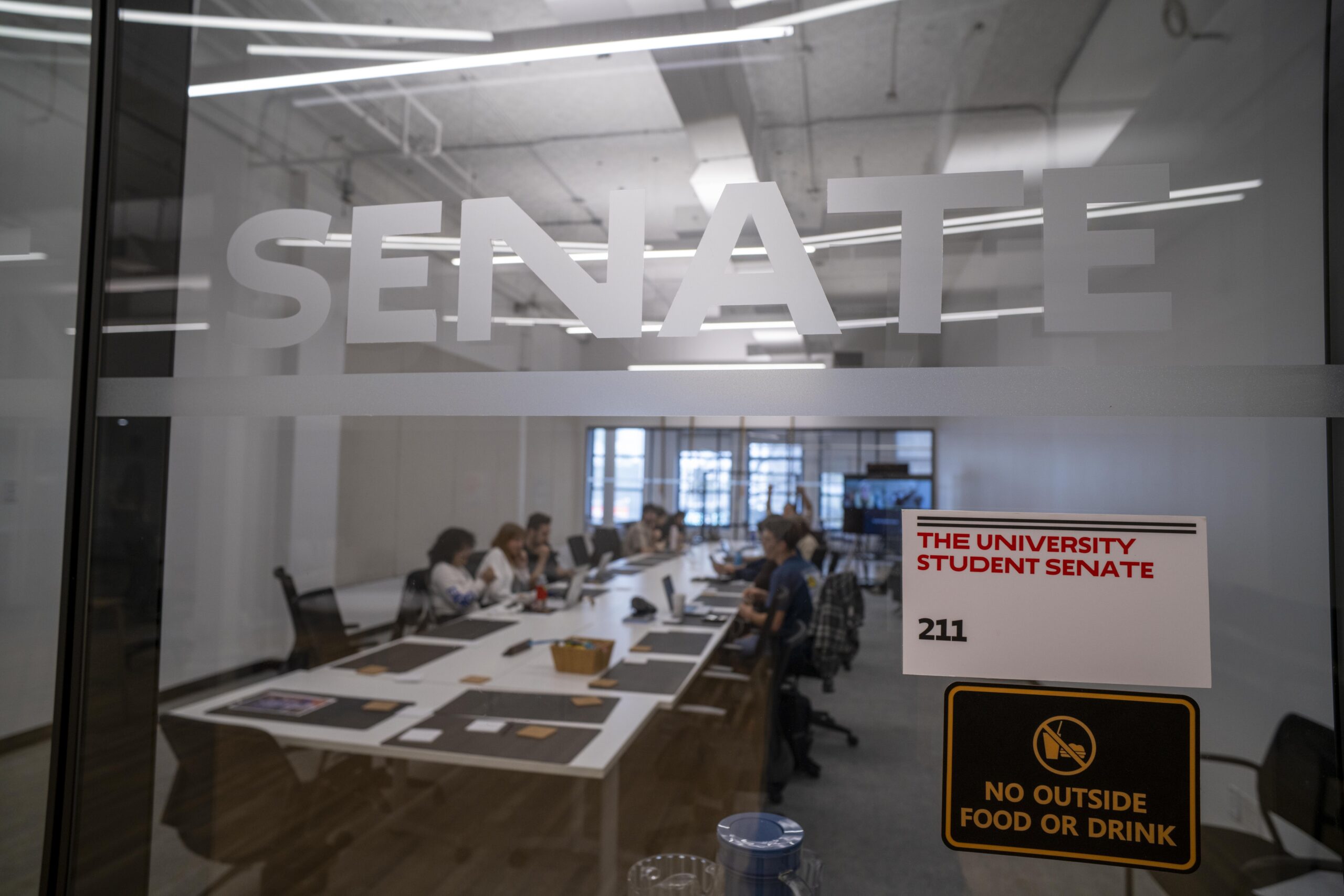Bryan Harlow, Eugene Lang College of Liberal Arts alum, has a multidisciplinary role in the film industry, wearing the hats of actor and writer in the past. Now, he can add producer to the list with his new short film Burning Virtue.
Inspired by the cycle of perpetuated incarceration and the particular harm it causes women and their rights, Harlow wrote and is in the final steps of producing the upcoming film to be released to festivals in January 2025. Harlow professed that Burning Virtue is only a short portion of this narrative. The film itself is only 16 minutes long. Following the festival circuit, he hopes to create a feature film, which will continue the stories of the main characters and expand the world that he and director Catriona Rubenis-Stevens have built.
Harlow studied psychology at Lang from 2005 to 2009 and took several theater classes at The New School as well. “They were great for exploration of the self, but they taught nothing about the business,” he said. It wasn’t until Bryan booked a role as an extra on the season two finale of HBO’s Succession that he became involved in the film industry in his professional life. As for how he got into the industry, he said, “I fell into acting, TV, and film, kind of by accident … and that just took off.”
Following his second deployment from the Army in 2019, along with completing his Masters in Global Affairs from NYU, Harlow returned to his acting roots and began involving himself in various films and screenwriting competitions — it was during one of these competitions where his idea for Burning Virtue was born.
Originally writing the screenplay in response to a prompt for a screenwriting competition called NYC Midnight in 2022, Harlow felt the idea had potential. The inclination to represent women in Burning Virtue was spurred by recent Texas legislation which encourages individuals to report violators of Senate Bill 8 for a bounty of $10,000. The law, also known as the Texas Heartbeat Act, authorizes a civil lawsuit against any physician who performs an illegal abortion. Following the competition, Bryan continued to develop the story after learning more about the Supreme Court ruling in 2021 regarding dramatic shifts in abortion legislation.
Burning Virtue follows ex-convict Ellen McNulty, played by Amanda Aday, who is trying to make her way in a world pitted against ex-cons in seemingly every way, shape, and form. Aday, daughter of the late actor and singer Meat Loaf, traveled from Kentucky to be in the film, which was shot in New York. Harlow noted the devotion of the cast, “The actors involved went out of their way to come in from other states, like Jenique Bennett, when I cast her in the role of Paula.”, who travelled from Missouri to participate in the film.

The movie began principal photography on Sept. 29 and wrapped on Oct. 1. “My director, Catriona, is an absolute wizard, and she managed to get it done in three very well run, 12 hour days,” Harlow said. Along with only having three days of shooting, he admits that he faced some challenges as a first-time producer. “There’s always the logistical pre-production challenges … trying to get this film union approval,” he said. He also cited issues relating to insurance, cost, and casting, as challenges during this process.
Harlow created Burning Virtue with a goal in mind — to represent the underrepresented. “I don’t base characters on myself. It’s old, tired and done … and there’s just far too many who look like me,” he said.
Like many, Harlow’s relationship to America is murky and contradicting. Following his graduation from Lang, Harlow commissioned into the Army, and continues to serve as an active officer. He credits his experiences in the military, along with his education at Lang, for influencing his writing. “Use what skills and information you have from your life and your other expertise to make your writing unique,” Harlow said.
For aspiring actors and writers, Harlow offered some advice for making it in the business. “Really learn the business of acting, read all those backstage articles, do a few extra gigs, if you can, and just talk to the other people there,” he said. In regards to screenwriting, Harlow said, “Writing is very much about self discipline, really holding yourself to those progress marks.”
In a similar vein, he hopes to hold America’s system of legislation to its “progress marks” in Burning Virtue, touching on how you create as a filmmaker informs what you create. “We can be overflowing with documentaries about the situation in this country, and we need them. They’re great work, but there’s not enough of a narrative approach for what we should do. That’s why I think the film’s important,” Harlow said, speaking about how Burning Virtue is working toward spreading awareness on taking action in times of crisis.
Burning Virtue aspires to resonate with those impacted by recent legislation as well as those affected by the incarceration system. He is attempting to speak to a large audience and hopes that his plans for a full-length feature film could widen the film’s reach. “The support I felt has just made me want to take this as far as it can possibly go,” Harlow said.








Leave a Reply